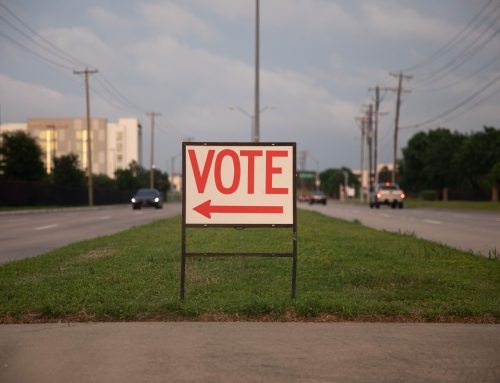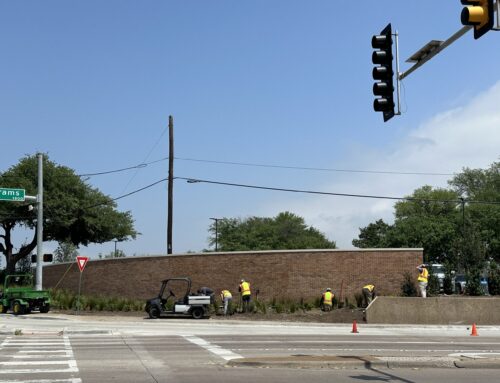In Downtown last week, Texas Honeybee Guild founders Brandon and Susan Pollard of East Dallas represented Texas for a group of foreign nationals at the behest of the World Affairs Council and the U.S. State Department.
The guests, with accents from Australia, India and Tajikistan, among others, were on a five-state tour to see how Americans manage agriculture — information they hoped to bring home and share.
Flanked by skyscrapers near a pair of buzzing honeybee colonies in the Fairmont Hotel’s terrace garden, the Pollards dropped science about bees, their battles with Colony Collapse Disorder and liberal pesticide usage after last year’s mosquito-spawned West Nile outbreak.
Our July cover story features a photo essay chronicling the Pollards’ beekeeping efforts.
“We now know more about mosquitoes than we ever wanted to know,” Susan Pollard said. “At this point, we know as much about mosquitoes as we do about bees.”
Here’s the cool part: For those not in the know, the arrival of feral bees is said to be a good omen, and as the tour concluded, a swarm of peaceful bees swooped onto the terrace in search of their queen and possibly a new home. Brandon Pollard called the event “auspicious,” adding that “It’s a blessing. Bees are in trouble and if we see more bees, that’s good.”
Visitors and guides then ducked the heat under the Fairmont’s covered patio to talk bees, eat raw honey and cool off with a sweating jug of Susan Pollard’s honey-infused iced tea. Sustainability and promoting healthy lifestyles were hot topics.
“I’m from Sri Lanka, which is a developing country,” said Dr. Kalambaarachchige Don Renuka Ruchira Silva, a nutritionist, senior lecturer at Wayamba University and bearer of what is quite possibly the most awesome name ever.
He lamented that developing countries like Sri Lanka look to an American fast food culture as a dietary role model. “I want to show that these Americans are now changing. You have to go with the traditional things, and that’s healthy.”
The international shindig lasted about two hours before hugs and handshakes signaled the group’s departure. It was a morning of new-found camaraderie and a chance to show others that not all Texans commute on horseback and carry six-shooters, even if some of us do. Moreover, advocacy for saving the world’s little pollinators was pushed well beyond Dallas County lines.
It’s a small world after all.
[portfolio_slideshow]




